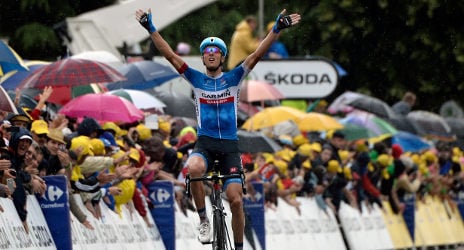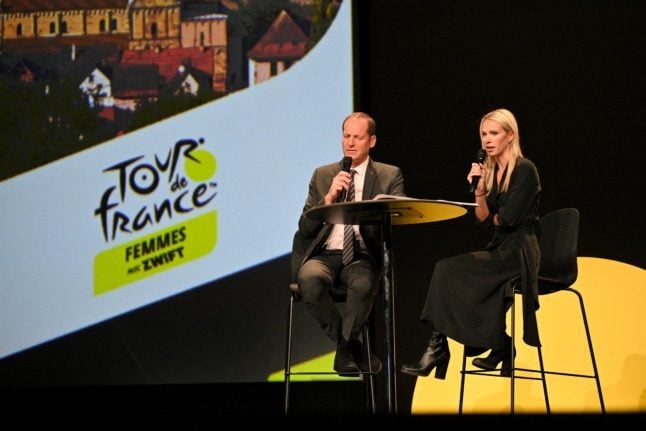Ramunas Navardauskas made history on Friday as he became the first Lithuanian to win a stage of the Tour de France.
The 26-year-old, who won a stage of the Giro d'Italia last year, stole a march on a disjointed peloton to escape to victory on the 208.5km 19th stage from Maubourguet to Bergerac.
The Garmin rider made his attack 13km from home on a short fourth category climb, passing his teammate and loan escapee Tom-Jelte Slagter before holding on in driving rain all the way to the finish.
German John Degenkolb won the sprint for second seven seconds back with two-time stage winner Alexander Kristoff of Norway third.
In what was already a disorganized chase, several riders in the peloton crashed on a right hand bend in the run-in.
One of those was sprinter's green jersey holder Peter Sagan, who was finally hoping for a stage victory following four second placed finishes at this Tour.
But when he went down, leaving his Cannondale team without a purpose, the chase stalled and Navardauskas was able to easily hold on for victory.
Another who went down in the spill was Frenchman Romain Bardet, placed fifth overall. As the crash happened in the final 3km, though, he lost no time.
Neither did race leader Vincenzo Nibali, who was held up by the crash, ashe maintained his 7min 10sec lead over second placed Frenchman Thibaut Pinot ahead of Saturday's 54km individual time-trial.



 Please whitelist us to continue reading.
Please whitelist us to continue reading.
Member comments